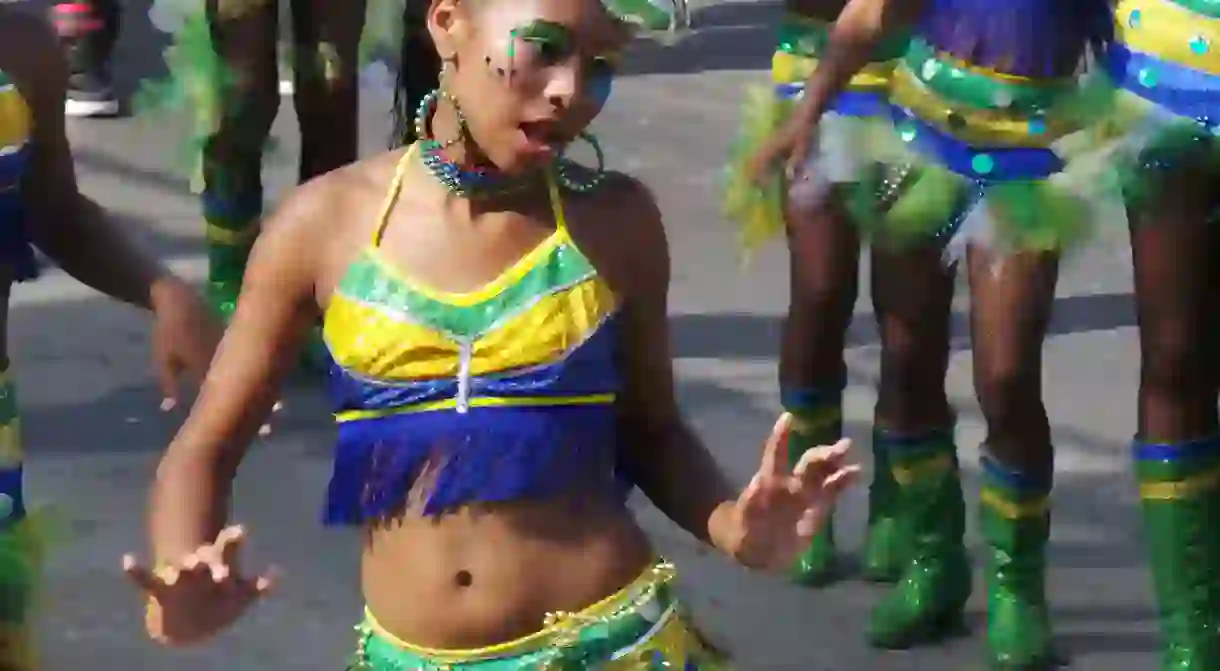Is This Colombian City The World Capital of African Music?

While there are undoubtedly plenty of actual African cities that might have something to say about the question in the title, the Colombian coastal city of Barranquilla has been developing a reputation as the place for African music. The declaration that “Barranquilla is the world capital of African music” is one that you will probably hear a lot if you visit the city – here’s why.
Barranquilla is far from the most beautiful city on the Colombian Caribbean Coast, most travelers don’t even make it there in their rush to tick off the colonial splendour of Cartagena, the jungle and beaches of Tayrona National Park and the pretty highlands of Minca. True, tourists flock to Barranquilla’s Carnival – the second largest in the world – but aside from this one celebration, it’s rare to meet people who stopped off in Barranquilla during their travels on the Caribbean Coast.

For music lovers, however, Barranquilla is a must-visit destination! Particularly for fans of ’70s and ’80s African music which, somewhat surprisingly, rules the dance-floors in Barranquilla. Music by African artists like Rémy Sahlomon, Prince Nico Mbarga and Lokassa Yabongo is a staple in Barranquilla musical culture, and can be heard blasting out from the streets of the city on a near-nightly basis. The key to all of this incredible musical variety: the picós.
Picós are the lifeblood of the city’s musical culture: a picó is a giant sound-system – usually two meters high and one meter across – covered in distinctive and colorful paintings. Individual picós are famous throughout the city, and each has its own unique design and name painted on, such as El Coreano, El Timbalero, El Gran Joe and many more. These sound-systems are prized for their strong sound and incredible volume and are the central point for raucous neighborhood parties which often go on into the early hours. There’s a picó in practically every neighborhood in Barranquilla.
http://instagram.com/p/BSpWq9DFy-E/?tagged=pic%C3%B3
So what’s the connection between the picós and African music? Almost all picó DJs mix exclusively with vinyl and have done since the early days of the picó in the 1950s. Musical genres like cumbia, porro, salsa and champeta have all been popular choices for DJs over the years, but it was the African music vinyl which arrived in the ’70s and ’80s which really caught people’s imagination, particularly soukous and highlife music from Ghana, Nigeria, the Congo and others.
In the archly competitive world of the picó – where each DJ is trying to prove that they have the biggest, best, most danceable sound around – it became common practice for DJs to remove the labels from their vinyl. This was in an effort to prevent their rivals from knowing the name of the latest tune they were spinning, as they obsessively sought new and exciting sounds to keep their parties fresh.

Therefore, thousands of classic African records entered Barranquilla’s musical culture and were absorbed by it, often without people even knowing the name of the artist. Many African musical standards ended up becoming so ‘Colombian’ that local artists reinterpreted them with a Colombian twist. In other cases, local musicians had absorbed so many different styles that they created incredible fusion records: one reviewer described the music of that period – as heard in the video below – as “practically geography-neutral.” Colombian coastal musicians took various elements from the music they were hearing from the picó DJs and combined them to create completely new and innovative sounds. Champeta music was born from this phenomenon, for example.
The unique African influence on Barranquilla culture is even evident in the annual Carnival celebrations – in order to be crowned Queen of the Carnival one thing which participants must do is dance the Congolese dance ndombolo. It is clearly evident that, along with music, dance is an essential connection between the city’s Afro-Colombian residents and the countries of their heritage. Barranquilla is, in so many ways, a global center of African music and culture. You can learn more about the culture of music, including the history of the picó, in the fascinating documentary below.
Naturally, the question of whether Barranquilla is the world capital of African music is slightly tongue-in-cheek; after all, Lagos, Luanda, Nairobi, Accra, Brazzaville, Bamako and many more would surely have something to say about that! However, Barranquilla’s deep connections to African culture and music make it truly stand out as one of the most important cities in the world for African music. The love and respect for African genres, artists and musical culture within the Colombian city are perhaps unparalleled outside the African continent.













